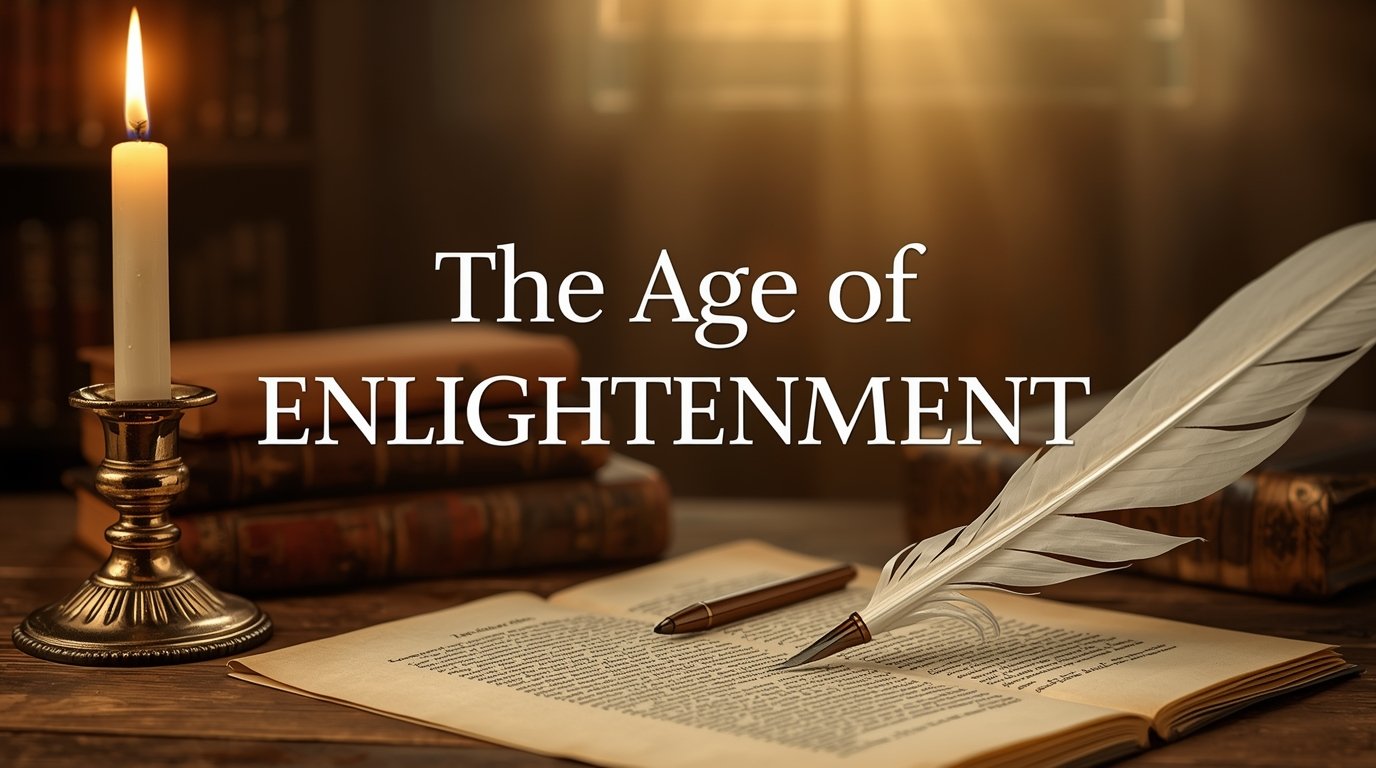Introduction
The Age of Enlightenment, also known as the Age of Reason, was an intellectual and cultural movement that dominated Europe during the 18th century. In Britain, it marked a turning point in literature, philosophy, science, and social thought. Writers and thinkers began to question traditional authority, emphasizing logic, reason, and individual freedom. This age laid the foundation for modern democracy, education, and literary criticism.
Historical Background
The Enlightenment emerged after the Restoration period and continued through the 18th century, overlapping with the Augustan Age in British literature. The influence of the Scientific Revolution and philosophers like John Locke, Francis Bacon, and Isaac Newton encouraged a spirit of rational inquiry. Britain became a hub for intellectual discussions, coffee-house debates, and journal publications.
Main Characteristics of the Enlightenment
- Reason over Tradition: Rational thought replaced blind faith and superstition.
- Humanism: Focus shifted from divine authority to human intellect and moral values.
- Empiricism: Knowledge was seen as coming from experience and observation.
- Individual Freedom: Thinkers supported liberty, equality, and human rights.
- Satire and Criticism: Writers used wit and satire to expose hypocrisy and corruption.
- Rise of Journalism and Essays: Periodicals like The Spectator spread new ideas widely.
Major Writers and Their Contributions
1. John Locke (1632–1704)
Locke’s Essay Concerning Human Understanding (1690) shaped Enlightenment thought by emphasizing experience as the source of knowledge. His political ideas influenced both British and American democratic traditions.
2. Joseph Addison and Richard Steele
Their journals The Tatler and The Spectator (early 1700s) promoted moral values, polite conversation, and rational thinking among the middle class. These works reflected the social ideals of the Enlightenment.
3. Alexander Pope (1688–1744)
Pope’s satirical works like The Rape of the Lock and An Essay on Man combined wit, intellect, and poetic perfection. He expressed the Enlightenment belief in balance, order, and reason.
4. Jonathan Swift (1667–1745)
Swift’s Gulliver’s Travels and A Modest Proposal are masterpieces of satire, exposing political corruption and human folly. His works reflect both the optimism and irony of the Enlightenment spirit.
5. Samuel Johnson (1709–1784)
Johnson’s Dictionary of the English Language (1755) and his essays in The Rambler marked him as a leading moralist and critic of his age. His rational and reflective writing style embodies Enlightenment ideals.
6. David Hume (1711–1776)
Hume, a philosopher and essayist, questioned religion and human understanding with logical reasoning. His skeptical approach influenced later thinkers and writers.
7. Edmund Burke (1729–1797)
Burke’s A Philosophical Enquiry into the Sublime and Beautiful (1757) bridged Enlightenment reason with emotional aesthetics, influencing Romantic literature that followed.
Themes in British Enlightenment Literature
- Rational Morality: Literature promoted reason as a guide to ethics.
- Social Satire: Authors critiqued politics, church, and social classes.
- Education and Reform: Writings encouraged learning and intellectual progress.
- Empirical Observation: Real-life experience was valued over imagination.
- Moderation and Harmony: Balance and order were seen as literary ideals.
Impact on Society and Later Literature
The Enlightenment changed how people viewed government, religion, and human potential. It inspired movements like Liberalism, Deism, and Scientific Rationalism. British Enlightenment thought influenced Romanticism, modern democracy, and educational reforms. Writers like Wordsworth and Coleridge later reacted against its rationalism, giving rise to new literary directions.
Conclusion
The Age of Enlightenment in British literature was a golden era of logic, satire, and reform. It celebrated the human mind’s capacity for knowledge and progress. By encouraging reason and individualism, it shaped not only the 18th century but also the entire course of Western thought and literary tradition.

